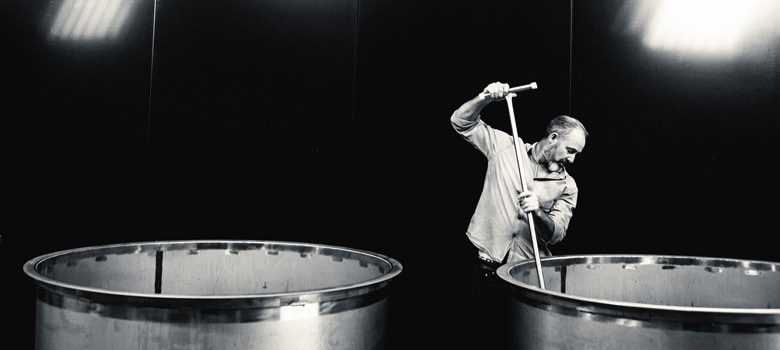
Wine
Resilience in a bottle
The Australian wine industry can be full of challenges, but as these producers show, some of life’s toughest moments are also its greatest lessons.
While many have dreamed of turning their love of wine into a living, few are really cut out for the challenges that viticulture and winemaking present. From the vagaries of the weather, to the financial challenges and personal losses, it takes a special strength of character to survive and thrive in the Australian wine industry.
For Ashley Ratcliff of Ricca Terra Farms, that strength came through proving the naysayers wrong. Ashley had a vision for growing grapes in South Australia’s Riverland that flew in the face of the region’s reputation for bulk wine production.
“While many see it as the engine room of the Australian wine industry, a reference I cringe at,” he says, “I see it as a truly unique place that should be considered as a premium wine growing region.”
Although Chardonnay, Shiraz and Cabernet Sauvignon make up the lion’s share of Riverland plantings, Ashley wanted to take an alternative path, recognising the suitability of the warm climate to Mediterranean grape varieties. This decision was not only questioned by locals, but openly laughed at.
“When we planted our first alternative grape varieties in 2006 (Nero d’Avola and Vermentino), a few local wine identities told me I was wasting my time. I guess I was new to the region as a grape grower, so they thought they had a point to make.”
But instead of being knocked down, Ashley became all the more determined to succeed, he explains. “I owe them a big thank you, as their lack of vision and negativity drove my positivity and desire to create a vineyard in the Riverland that was judged on the quality of wines it produced, not on its physical location.”
Ashley’s determination paid off and as it turned out, the early detractors were in the minority in a generally very supportive industry. “We have been very fortunate to have been able to sell grapes to some amazing winemakers, who have helped support our notion that the Riverland is a premium wine growing region,” Ashley describes. “Our wines have won multiple Trophies, and we have a strong national and global distribution network. So I think our early strategy (built mainly on dreams) of being different, and caring about region, history and the environment, is working well.”
Strength through generosity
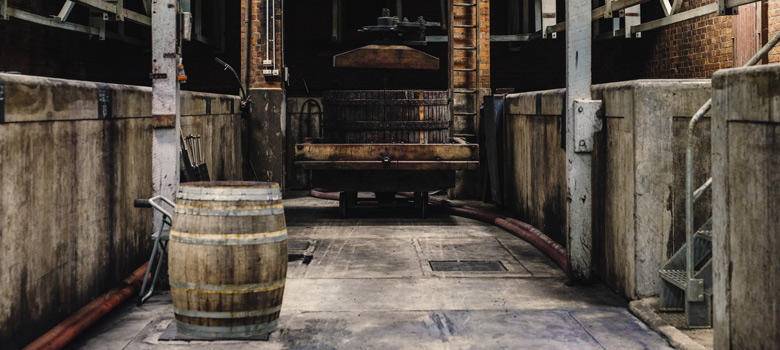
Part of Ashley’s resolve came through his concern for future water shortages and his decision has proved spot on in today’s thirsty agricultural sector. Forward planning also became essential to John and Lynne Derwin when choosing a new home after surviving the 2009 Black Saturday bushfires.
“We selected a property with a very good water supply and if there’s a next time, we will go down to the lake and float out to the middle, not go trying to drive out through the fire like we did last time,” Lynne explains.
At the time of the fires, the Derwin’s home was Roundstone Vineyard in Yarra Glen in the Yarra Valley where they were award-winning Pinot Noir producers and the first to grow Gamay in the region.
However, February 7, 2009 saw all they had built devastated as fire destroyed their restaurant, cellar door, winery, house, vineyard, irrigation and fencing. As Lynne remembers, “The damage was so very widespread in the vineyard. I can’t begin to describe the pain, tears and personal cost. All those years of work just gone up in smoke.”
Lynne says a lot of her strength in the aftermath of this tragedy came from John, who said to her, “Well, we can’t sell it or leave it looking like this. We have to bring it back to what it was to recover.”
This event brought out the incredible generosity of the local winemaking community as they joined forces to support their neighbours. “Winemakers came to help catch our sheep by hand,” Lynne describes. “We were given an old schoolhouse and a mobile toilet and that enabled us to stay there and work on the vineyard. De Bortoli, Yarra Ridge, Yering Farm, Punt Road and Domain Chandon wineries helped in so many ways.”
The Derwins (pictured below, right) revived their property and in 2011 and 2012, they enjoyed strong vintages. However, in 2012 they decided to sell up, leave the wine industry and move closer to family in Bowral. “We were glad to move in the end,” Lynne says. “However, we do miss the wine industry, its people and our friends in Yarra Glen.”
local support
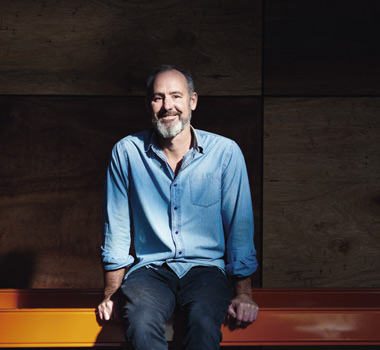
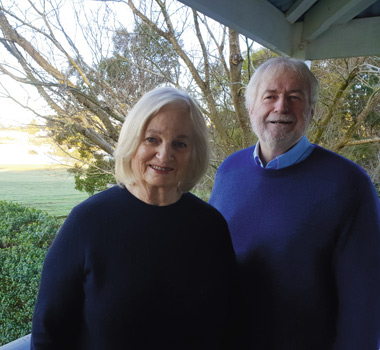
The support of his fellow winemakers was also key to Jim Chatto (pictured above, left) being able to stay afloat after the 2018/19 Tasmanian bushfires. While Jim’s Huon Valley vineyards were away from the threat of the flames, they couldn’t escape the taint brought by the smoke. To avoid wines that tasted like an ashtray, in April, Jim made the decision to pull the plug on the 2019 vintage.
“Bushfire and smoke of the severity we had meant there was nothing I could do, save draw on my experience to make the call early enough,” Jim explains.
The local community rallied, though, and, Jim describes, “We had wine industry friends reach out with offers of fruit from around Tasmania and the north island. Without the generosity of others, namely Marion’s Vineyard, Ghost Rock, Goaty Hill and Pipers Brook, we would struggle to stay in business. I cannot overstate my gratitude and pride in our wonderful industry.”
love and loss
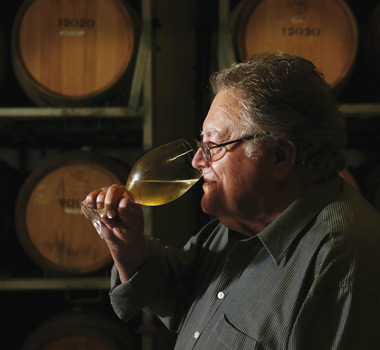
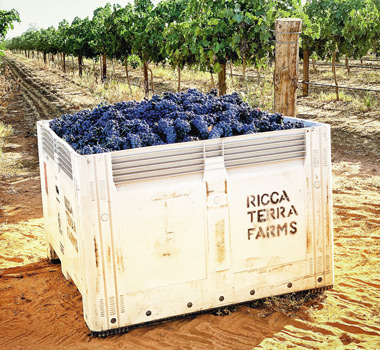
Jim believes that cultivating strength of character is “the very definition of a farmer” and Hunter Valley winemaker Brian McGuigan (pictured above, left) agrees.
“I think that anyone in agriculture needs to be resilient,” he says, because the problems come pretty much weekly, and most of them are not of our own making.”
That was certainly the case when it came to the devastating events of 1990. Since establishing Wyndham Estate in 1970, Brian and his wife Fay had built it up into a tremendously successful business. In fact, it had grown so big that in 1985 they went public. Unfortunately, however, in 1990, one of their partners sold his share of Wyndham to Pernod Ricard and Brian and Fay found themselves in the midst of a hostile takeover.
While the tenacious couple would normally have found the strength to fight for their business, the McGuigans were also dealing with a more heart-breaking tragedy – the loss of their 19-year-old daughter Vanessa to ovarian cancer.
Following Vanessa’s death, it took a couple of years, but Brian eventually decided that he and Fay needed to be back in the wine industry.
“The thought of not having a job that fully occupied our time was abhorrent to Fay and myself,” he explains, “so we decided we needed to get back to what we loved and to devote our time to the development of a new brand, rather than be completely occupied thinking about our lost daughter.”
This was a decision met with great positivity by the wine community, Brian recalls. “Most, if not all, of my competitors were very pleased to see us start our new company – Brian McGuigan Wines Ltd – because I think that they felt like we did at the time – which was a feeling of such disappointment at the loss of our daughter and our company.”
Today, Brian draws on his experiences to give financial advice to others in the industry. “Because I have been through so many issues,” he says. “I can help others by giving them the message that comes from life experience – I find this a very rewarding part of my life now.”
Resolve to succeed
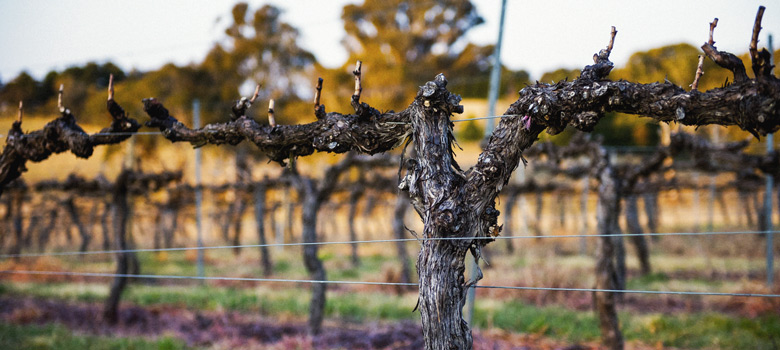
Eliza Brown of Rutherglen’s All Saints Estate also knows first hand how personal loss can shape your future. In 2005, her father Peter – head of their family’s winery – was killed in a road accident, leaving not only a gaping hole in their lives, but also no succession plan.
Rather than sell or bring in a manager, Eliza, her brother Nick and sister Angela decided to step up to the plate and today Eliza is CEO, Nick is General Manager and Angela is Sales and Marketing Director.
But the road was by no means smooth, she explains. “We had many challenges after our father passed away. He had created several businesses, and some of these were handshake deals. We had to work through each business and understand if it was contributing to the overall strategy and if it didn’t, we had to close it down or sell it. This was a challenging thing to do when it involved staff; nothing can teach you how to do this.”
While he might not have left them with a plan, Peter had gifted his children a great life lesson in resilience.
“My mother and father worked very hard building the Brown Brothers business with my uncle and aunts,” Eliza describes, “so that was something from a very early age we watched. Not everything went to plan; there were always obstacles in agriculture and family business, and my family moved through them with determination.”
Her father, she feels, “Would be very proud of how far we have come with the business and our working relationships. Also, he would be particularly angry with me because in the early days I sold his bulldozer and his pile of scrap metal to pay some bills!”
a Near-death lesson
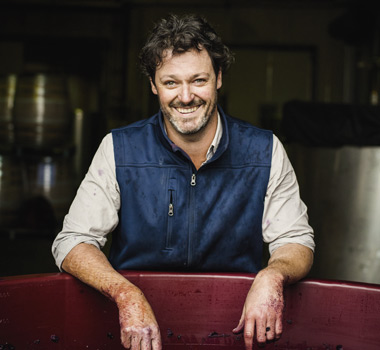
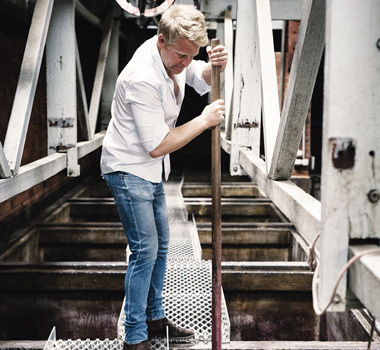
Taking control was something winemaker William Rikard-Bell (pictured above, left) decided to do after almost losing his life in a Hunter Valley winery explosion in 2008. Having survived the arduous recovery from third degree burns to 70 percent of his body, he was keen to get back to winemaking.
“I guess I didn’t want my burns to define me or change who I was, so I strived for a complete return to ‘normality’ and nothing less! Winemaking was central to that.”
William had started his winemaking career in the Orange region, so headed back there in 2011 and after working for others, in 2015 he and his wife Kimberley launched their own brand, Rikard Wines. The push to do this, William describes, came partly through his life-threatening ordeal.
“I guess I didn’t want to die wondering what I could have done – because I almost had! I felt a certain urgency at that point to get on with it. Maybe I was more aware of how short life was (as cliched as that sounds) and that nothing was really as scary as I once thought. Besides, I never was really doing it alone; having Kimberley alongside provided a lot of the strength.”
In just a few years, William has built up a loyal customer base and for the last two years has been in the Top 50 in the Young Gun of Wine competition.
Whether they’re forging new ground, or overcoming adversity, these wine producers share the view that their industry provides a natural source of optimism. As Jim Chatto sums it up: “Every year is a fresh start, which is inspiring in that it feeds the motivation required to keep going. Hope is key to resilience.”